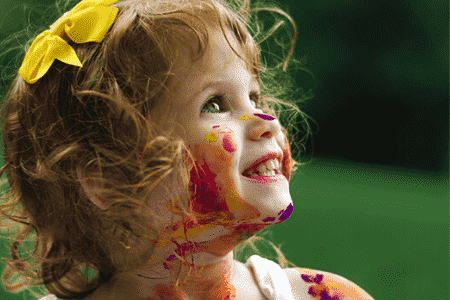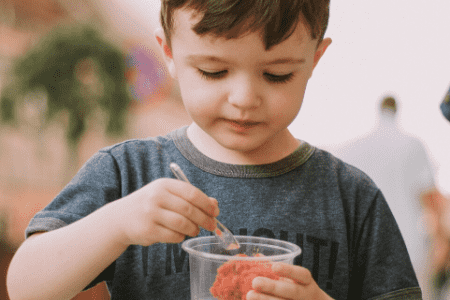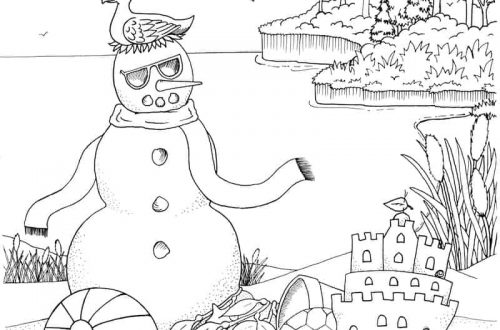
Look What I Made!
Academic Achievement and the Creative Process in Preschool and Kindergarten
Behind the Teacher's Desk: January 2020
By Hema Walker
…As the sun colors flowers, so does art color life
– John Lubbock, The Pleasures of Life

The joyful sights and sounds of children creating their own masterpieces and engaging in the creative process reveal more than just a playful diversion from the important work of academics. The process of creating with one’s own hands, and as a group, is rich with essential skills that enrich and support academic pursuits and give rise to meaningful connections between the student and the academic material. A wealth of research indicates that the inclusion of the arts in education creates well-rounded individuals who possess not just strong academic skills but also the social, emotional and problem-solving skills that support creativity, collaboration, empathy and civic engagement.
High quality preschool and kindergarten programs offer abundant daily opportunities for children to experience the satisfaction and sense of empowerment that comes through engaging in the creative process. From painting at the easel and creating works of art during free choice time, to teacher led art, sewing, felting and baking projects that reflect the seasons and themes of study, students gain vital skills that come through working with their hands. Incorporating artistic self-expression into academic lessons through book making empowers children to create their own ABC and 123, drawing journal and seasonal books that reflect their unique creative spirit. Weaving singing, dancing, yoga asanas and dramatic storytelling into the daily curriculum brings the creative process joyfully to life for young children. And of course, children love to share the fruit of their creative pursuits by presenting what they have learned to the larger school community through performances on stage.
When young children engage in coloring, painting, cutting, gluing, baking, felting and sewing they are exercising and refining their fine motor skills. These activities strengthen hand-eye coordination and directly support the academic skills of holding a pencil and forming letters and numbers. Crafting activities encourage both hands to work together, encouraging bilateral coordination, as connections are made between the right and left sides of the brain.

The creative process especially strengthens the frontal lobe of the brain, our “control panel,” which manages purposeful mental action and positive personality development. The quiet focus required for creative projects strengthens the child’s attention span and encourages perseverance and patience. The complex tasks involved in the creative process fortify the skills of planning, sequencing, critical thinking and problem solving. This process involves trial and error, self-regulation when things don’t turn out as planned, and flexibility to accept “mistakes” or use these mistakes to create something new. Innovative endeavors develop a child’s inner vision, encouraging independent thought and the ability to look at things from different perspectives. Children’s connections to the natural world and seasons are strengthened by using natural materials and objects collected from nature. Finally, engaging in the creative process builds self-esteem as children experience the satisfaction of creating something on their own, as well as empathy and connection when they engage in the creative process with their peers.
As preschool and kindergarten students delve into the hands-on, engaging activities and academics that constitute the “work/play” of their day, they are fulfilling an essential human need to create and develop their imagination. This creative approach to educating young children addresses the developmental needs of the whole child, as it cultivates the essential skills of capability, creativity and collaboration, as well as a joyful and positive attitude towards education.
Hema Walker is the director of the Mount Madonna School (MMS) preschool/kindergarten program as well as one of its lead teachers. She has taught in the Pre/K program for 18 years and also teaches in the MMS Mountain of Fun summer day camps. Hema recently completed her certification in teaching yoga and mindfulness to children through the Mount Madonna Institute, and loves to weave movement and breath awareness into her teaching.


You May Also Like

Stop the Bad Swelling: Healthy Eating January 2020
January 1, 2020
Coloring Page January 2020
January 1, 2020

